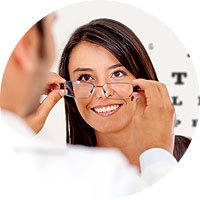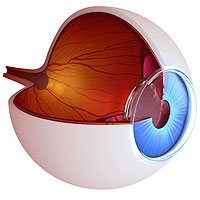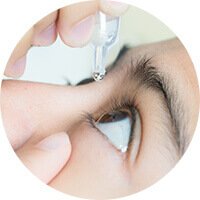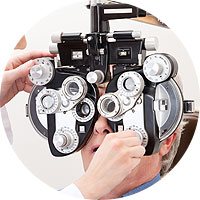
The retina lines the back wall of your eye and is necessary for eyesight. But, it is thin and sensitive, and many conditions can damage it and rob you of your vision.
Most retinal disorders share symptoms and warning signs. No matter what is damaging your retina or how it results in impaired eyesight or vision loss.
Retinal damage causes many of the same symptoms. Retinal disorder risk factors and prevention are also similar.
Keep reading to learn more about some of the most common retinal disorders and how you can prevent them.
Retinal Tear
A retinal tear is a rip in the retina. Often they occur when the vitreous, the gel-like substance that gives your eye its shape, tugs on the retina.
The vitreous shrinks as you age, and when it shrinks, it pulls on the retina. If it pulls with enough force, it can cause a rip. Retinal tears can cause a sudden increase in floaters and flashes in your vision.
Retinal Detachment
Tears in your retina can lead to retinal detachment. A retinal detachment is when fluid gets underneath your retina.
This fluid causes the retina to detach from the wall of your eye. Retinal detachments are a medical emergency and require prompt treatment, or you risk vision loss.
Diabetic Retinopathy
Diabetes can cause smaller blood vessels to weaken, especially in your kidneys and eyes. This weakening can lead to fluid leaking under your retina, which distorts or damages your vision.
In some cases, your body produces new blood vessels to compensate for the weak ones. These new blood vessels are also fragile and tend to result in persistent leaking.
Diabetes causes a lot of damage to your eyes. If you have diabetes, you should have at least two eye exams every year to avoid losing your eyesight.
Epiretinal Membrane
An epiretinal membrane is a collection of scar tissue on the surface of your retina. They have many potential causes and can impact your eyesight.
The scar tissue pulls on your retina in much the same way a shrinking vitreous does. At worst, this can cause a retinal tear or detached retina.
Even if your epiretinal membrane does not do this much damage, it can pull on your retina and cause vision problems.
Macular Hole
The macula is the center of your retina. It handles your fine detailed central vision and ability to see color.
A macular hole is a defect in your macula that can distort your vision and cause vision loss.
They’re usually caused by the vitreous pulling on your retina or eye trauma and can lead to detached retinas and vision loss, so treatment is necessary.
Macular Degeneration
Macular degeneration is a deterioration of your macula. There are two types of macular degeneration, wet and dry macular degeneration.
Most people have dry macular degeneration first. It can then progress to wet macular degeneration in one or both of your eyes.
Macular degeneration causes blurred vision and a blind spot in your central vision. Age plays a significant role in developing this retinal disorder.
How Do You Prevent Retina Disorders?
Retina disorders have many similar symptoms and common causes. An eye doctor must diagnose each condition separately, but you can do things to prevent or delay all these disorders.
All preventions relate to maintaining good health. Some of the best things you can do to keep your retinas healthy are:
- Quit smoking
- Maintain healthy weight
- Control blood sugar levels and keep diabetes in check
- Avoid or treat eye trauma
- Know if your family has a history of retinal disorders
The best way to ensure you don’t have any retinal disorders is to have regular eye appointments. That way, your eye doctor can track the health of your retinas.
Do you need an eye exam? Schedule an appointment at Eye Care Specialists in Bloomsburg, PA, to make sure yours are healthy!

















